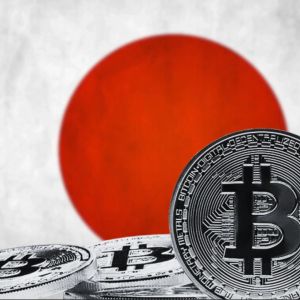Japan is preparing to impose its first-ever ban on insider trading in cryptocurrencies, a move that could inspire regulators to tweak global standards and improve market integrity and transparency. Cryptopolitan reported earlier this week, citing updates from Nikkei Asia, that Japan’s Financial Services Agency (FSA) is giving market watchdog Securities and Exchange Surveillance Commission (SESC) authority to investigate illicit crypto trades and pursue criminal referrals. The change extended the reach of the Financial Instruments and Exchange Act (FIEA), which previously did not apply to cryptocurrencies. A new framework gives the SESC the authority to look into instances of people trading on secret information and, if found guilty, to suggest a surcharge or refer the matter to the appropriate authorities for criminal prosecution. The FSA said it will finalize details through a working group by the end of the year and submit legislative amendments during parliamentary sessions in 2026. Japan start push for fairer trading conditions Until now, Japan’s oversight of the digital asset market was largely based on self-regulation by crypto exchanges and the Japan Virtual and Crypto Assets Exchange Association. Regulators were reportedly unsatisfied with the monitoring system for transaction data for failing to impose laws needed to deter manipulation or insider trading. Handing oversight to the SESC would mean the government is creating a more transparent and enforceable system that could punish insiders taking advantage of investors. Officials hope the reforms will also draw more numbers towards cryptocurrency investments, as its protections would become almost similar to those of traditional markets. According to Nikkei Asia, there were 7.88 million active cryptocurrency accounts in Japan as of August, more than four times the figure recorded five years ago. Cessiah Lopez, the head of policy and research at Superteam UK, said Japan could pressure other major economies, particularly the United States, to clarify their own rules around crypto insider trading. “Insider trading erodes the integrity of our international financial systems and contributes to the subversion of the crypto community’s belief in democratizing access to wealth,” Lopez said. “Any move that helps harmonize the protection against it on a global scale should be welcomed.” She noted that the US law on insider trading in crypto is still “pretty much fragmented,” because it addresses insider trading cases “one at a time” based on traditional securities law. This has caused security market watchdogs to have an inconsistent enforcement record, where some wrongdoers in decentralized finance could easily walk away unscathed. Legislative clarity versus case-by-case enforcement According to John Park, the head of Korea at the Arbitrum Foundation, Japan’s enforcement mandate change came down to a “a choice for legislative clarity over case-by-case improvisation.” If the government stipulates crypto insider trading prohibitions within the FIEA and arming the SESC with the same investigative tools used for securities, Park believes other jurisdictions will replicate what Tokyo does. “That creates gravitational pull,” Park explained. “Compliance teams that standardize around MiCA in Europe will find Japan’s FIEA rulebook legible.” He added that operational norms for market integrity are “hardening in Brussels and Tokyo first,” suggesting that the US could eventually adapt to those norms “out of competitive necessity.” Park also mentioned Japan’s legislative-first model “aligns with the EU’s philosophy and sets a high bar for market integrity.” However, he reiterated “regional hubs are not copying each other line by line.” “It is a de facto clarity bloc that institutions find legible, even if local rulebooks are not identical,” the KAF head surmised. While Japan could be making a decisive step toward protecting investors, regulators are still at a standoff as to what counts as “inside information” in a decentralized market. Insider trading laws in traditional finance clearly cover defined events like mergers, spinoffs, or disaster-related damages. Crypto markets, however, lack identifiable issuers or centralized governance structures, which is why it could be difficult to determine who qualifies as an insider or what constitutes non-public information. Want your project in front of crypto’s top minds? Feature it in our next industry report, where data meets impact.















